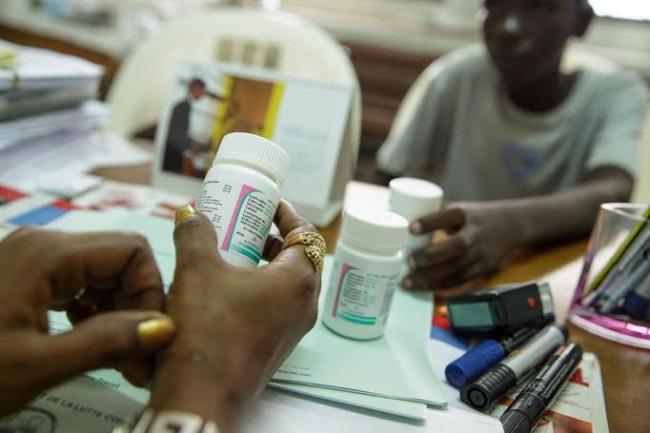10 Mar 2016, 05:29 am Print

The four-month pilot project in Abidjan is part of a collaboration between the Joint UN Programme on HIV/AIDS (UNAIDS) and the telecommunications operator Orange.
This project “will allow countries to benefit from state-of-the-art technology that is cost-effective and simple to use, to ensure they can provide the highest quality of services for people living with and affected by HIV,” Michel Sidibé, Executive Director of UNAIDS, said in a press release.
By using a web-based platform, Orange Mobile Training EveryWhere (M-Tew), healthcare workers will be able to communicate via text messages, calls and voice messages, with people enrolled in care.
The people involved in the pilot project are those most affected by HIV in Abidjan, according to the press release, including 300 sex workers and men who have sex with men.
All information collected is said to be anonymous and fully confidential.
Some of the goals are to improve HIV services to ensure that patients remain in care and treatment, as well as to break down stigma and discrimination.
The creators also said that the programme will collect and analyse data, in order to identify gaps and take action to improve the quality of care.
The Côte d'Ivoire Government has said it is supportive of the programme, which would help it achieve a reduction in HIV prevalence to below one per cent by 2020.
In addition to the Ministry of Health and Public Hygiene and the Autonomous District of Abidjan, UNAIDS and Orange Côte d’Ivoire are also collaborating with civil society partners.
If successful, the project will be rolled out to other areas of Abidjan, and could be expanded to other priority countries in the region.
Photo: UNICEF/Olivier Asselin
- New hybrid Mpox strain surfaces in UK and India — WHO sounds global alert
- Deadly weight: Obesity now responsible for 1 in 10 infection deaths worldwide
- Coffee and tea: This everyday drink may help protect your brain from dementia
- Happy Chocolate Day! The sweet secret behind chocolate’s hidden benefits
- Cambridge study finds menopause affects memory, mood, and sleep





-1763561110.jpg)
